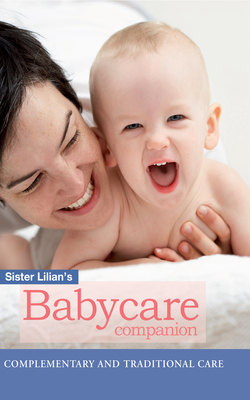Читать книгу Sister Lilian’s Babycare Companion: Complimentary and traditional care - Lilian Paramor - Страница 47
На сайте Литреса книга снята с продажи.
SLEEP IN SMALL BABIES
ОглавлениеConsider these perspectives and hints to help you understand and cope, but also consult the extensive chapter devoted to this topic:
Sleep perspectives
•Most babies do not sleep to their parents’ satisfaction – expectations are possibly incorrect.
•Babies’ physiological sleep patterns are different from those of older children and adults.
•Poor sleep patterns often run in families.
•Traumatic pregnancies and births contribute to restless sleeping.
•Anxious parents tend to have babies who sleep poorly.
•First children usually have more restless sleep.
•Babies of parents who both work outside of the home all day often wake more frequently at night.
•Many things in the life of a baby and small child, like colic, teething, illness, immunisation and anxiety, predispose them to waking at night.
•Some babies change day and night around in the early weeks.
•Poor sleep patterns can become a habit if incorrectly handled.
•Parents who prefer not to sleep alone themselves maybe have unrealistic expectations of their babies.
•Some babies have active dream lives that jolt them from sleep.
•Babies’ sleep patterns sometimes become worse after vaccination.
Sleep hints
•Treat your own anxiety with relaxation techniques, homeopathic Rescue Emotion and greater regularity in lifestyle habits.
•Take care not to resent your baby’s night waking as he will sense this and then wake more frequently from anxiety.
•Never look at the clock when waking or count the times Baby called.
•Put Baby down in her own room or cot for daytime naps and when going to sleep at night, but take her into bed with you or directly alongside you from the first time they wake after you go to bed, so that you do not have to wake altogether when attending to her needs at night.
•There is no need to change nappies at night from about six weeks, unless Baby has a rash or a soiled nappy.
•Do not feed or pick Baby up at the very first sound at night.
•Do not wake Baby for a final feed just before you go to sleep thinking that this will let them sleep for longer – disrupting the ‘core night’ disturbs sleep patterns.
•Keep interaction with your baby to a minimum at night as talking, eye contact and light will waken Baby altogether.
•Do not fear the family bed – it is often only time that is needed until Baby’s sleep pattern matures and until this happens, you need to use any survival tips you can!
•If Baby is wakeful at night, ensure that the daytime caregiver is not allowing her to sleep for longer than two hours at a time.
•Have a regular wind-down routine to Baby’s day that progresses from more boisterous to calm activities.
•Massage a poor sleeper before bedtime, and between his eyebrows and on his temples when he wakes at night.
•Put Baby down to sleep before she falls into a deep sleep at the breast or on the bottle. Pat her to complete the process.
•If Baby is generally restless, give homeopathic Rescue Rest or Chamomilla Tablets.
